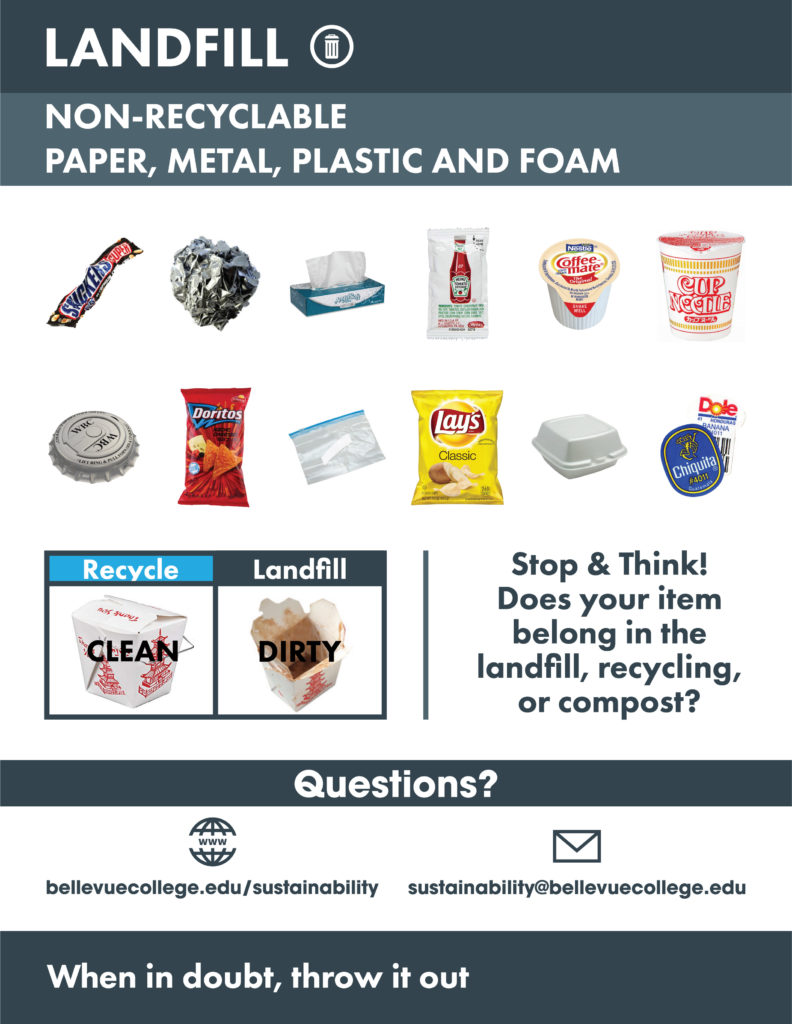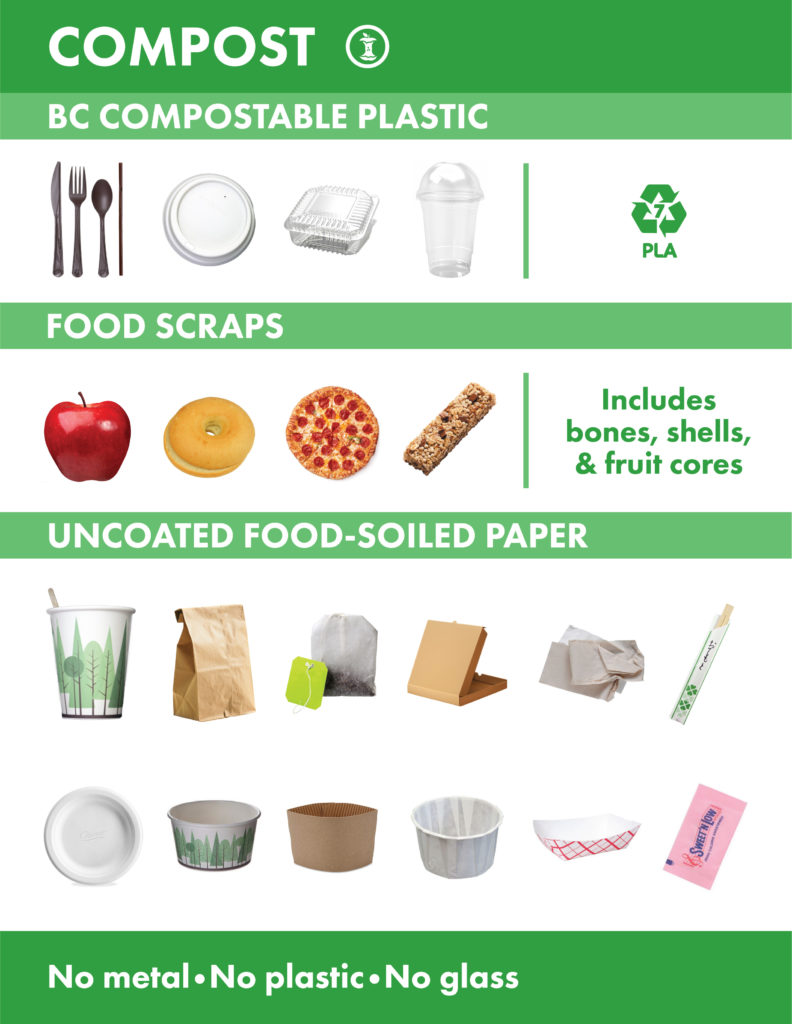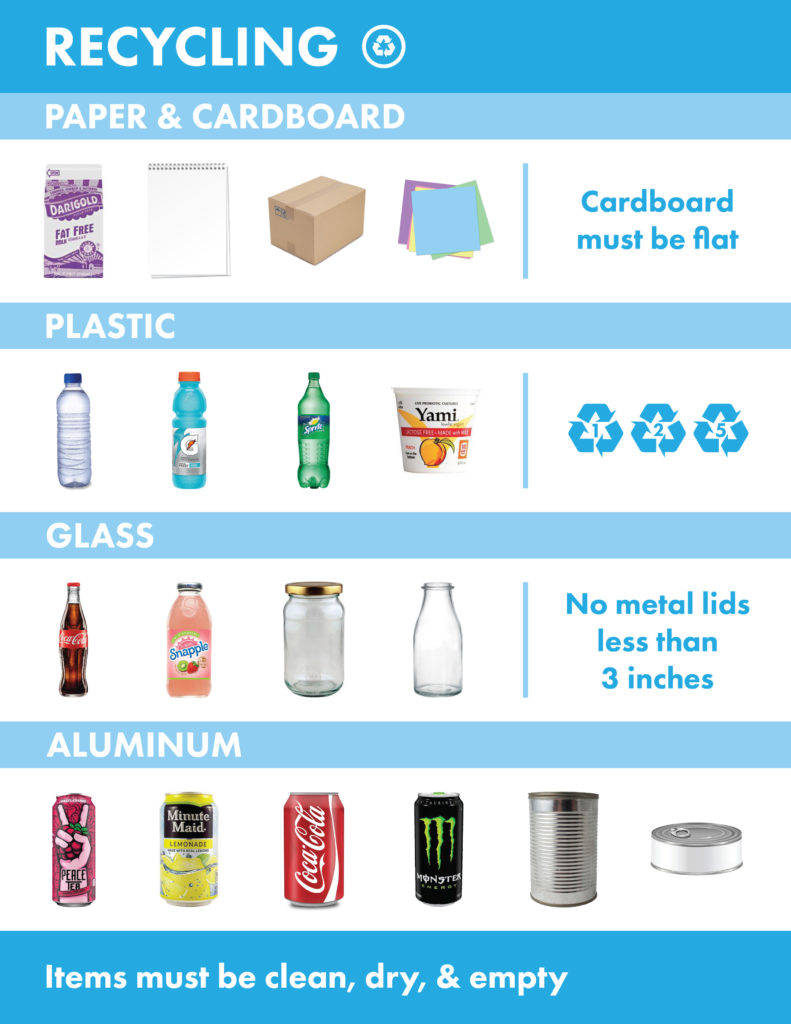


Download signs here: Landfill, Recycle, Compost
The Process
This is how the waste sorting process operates on campus.
Community Sorting
The Bellevue College community properly sorts materials into the tri-stream system: landfill, recycling, compost.
Learn more about the Mini-Max process.
Collection
Custodial staff collects all tri-stream waste into rolling bins.
Sorting
Rolling bins are taken to recycling, compost, and landfill dumpsters and sorted accordingly with the corresponding waste.
Repurposing & Disposal
Compost and recyclable waste start a new life as repurposed plastic, glass, metal, and compost products! Waste materials go to landfill and are properly disposed of.

In-Depth Tips
Landfill
- No recyclables or compostable items
- All metal caps and lids less than 3 inches belong in landfill
- No hazardous waste
- Special Items: Plastic grocery bags, electronics, and batteries should not go in the landfill and can be recycled when brought to the proper facility.
Compost
- No metal, no plastic, no glass
- All food including meat, bones and shells are acceptable
- Cups, lids, and any food packaging with the labels of PLA-7, greenware, ecotainer, or any other icon/words symbolizing compost is compostable
- Paper products must be uncoated and unlined
- Only use approved compostable and paper bags to collect compost
Recycling
- Items must be clean, dry, and empty
- No food or liquid
- No metal lids less than 3 inches
- All plastic lids must be attached to their container
- No plastic bags or film wrap
- Scrap metal must be smaller than 2 x 2 x 2 and lighter than 35 lbs
Last Updated August 19, 2024
